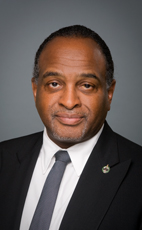Mr. Speaker, I am proud to rise in the House to support Bill C-568, introduced by my colleague from Saint-Jean. It is a simple bill, but an important one.
With power comes responsibility. Canada is fortunate to have a military force whose personnel make us proud. Their work within our borders and abroad is one of constant dedication and a continuous source of pride. Canada is recognized as a meaningful contributor to numerous missions abroad, both in peacetime and in times of conflict.
In my riding, I am proud to have a number of Legions whose members remain vigilant in helping our community to commemorate our history. Our history forms a significant part of our collective memory and serves to inform those who have made Canada their home.
Serving as military personnel is a task fraught with many on-the-job risks. Post-traumatic stress disorder is increasingly being recognized as a widespread effect of protracted combat operations. The long-term mental health of Canadian troops is coming to bear as an issue requiring a more in-depth response from the government in much the same way as a loss of a limb or an injury of the flesh.
We here in the House—the government and all members of the House—must take up our responsibilities. When Canadian men and women choose to serve in our Canadian Armed Forces, they do so at the risk of paying the ultimate price. For that reason, they need to know that we are behind them. They need to know that if they are wounded in our service, we are behind them. They need to know that we will provide the care that is needed when it is needed and that we will make sure their particular needs are addressed. It is a part of the social contract, a moral obligation that the state has toward its men and women in military service.
Since the Great War and the Second World War, Canadians have remained active in deployments abroad, most recently in Afghanistan, but surely we remember our contributions to Bosnia, Cyprus, and other missions around the world. Our soldiers go where our leadership tells them, and they bear the scars to prove it—and there are scars. There has been loss of life and limb. There has been injury to body and mind. Their particular roles in these missions are reflected in their particular needs in the health care system when their work is done and they return to Canada, their home. These are Canadian veterans, and we should be treating them as such.
Canada's recent veterans' needs are great. They need a greater priority. They need greater priority access to long-term health care funded by the Department of Veterans Affairs. The government needs to acknowledge its responsibility.
Those eligible Canadians who served before 1953 have earned their access to long-term medical supervision, contract beds in hospitals for acute care, and nursing services. It is written in the veterans' health care regulations, and so it should be. However, to be a Canadian veteran does not stop as of 1953, so what of those men and women post-1953?
For those Canadians who served after 1953, the health care picture is not so rosy. They can access community beds, but these are part of the general pool of beds available to all Canadians in need of a particular type of medical care, so there are no priorities made. To be fair, in Quebec we do have a federal long-term care institution, but shortly Veterans Affairs will be transferring it to the province, which means those beds will not be available for modern-day veterans.
Our veterans deserve to be treated with respect and dignity, regardless of when they served our country.
The government must support long-term health care for modern-day veterans, as it has for those who served before 1953. This should be an inherent understanding and obligation on the part of any democratic government that sends young men and women into harm's way for the country's ideals.
The Veterans Ombudsman agrees, so much so that he released a report on the matter. It is called “Veterans' Long-Term Care Needs: a Review of the Support Provided by Veterans Affairs Canada through its Long-Term Care Program”. It is pretty clear, as far as titles go. I hope the government has read it, because it sure has not followed it.
The government should improve support of veterans suffering from PTSD. The government should reverse its decision on the closure of eight Veterans Affairs offices, and the government should extend the veterans independence program to all veterans, to their spouses, and to the members of the RCMP.
Veterans and their families should be cared for so that they have one less thing to think about while they are running their missions. They are Canadian citizens, first and foremost. It is not an issue that they should be moved to the head of the line, but rather should be afforded the care and respect they are due.
They are our veterans. Our veterans deserve more than service reductions. They deserve more than budget cuts. They put their lives on the line for Canadians. The least that Canada's government can do is ensure they did it for a reason.

